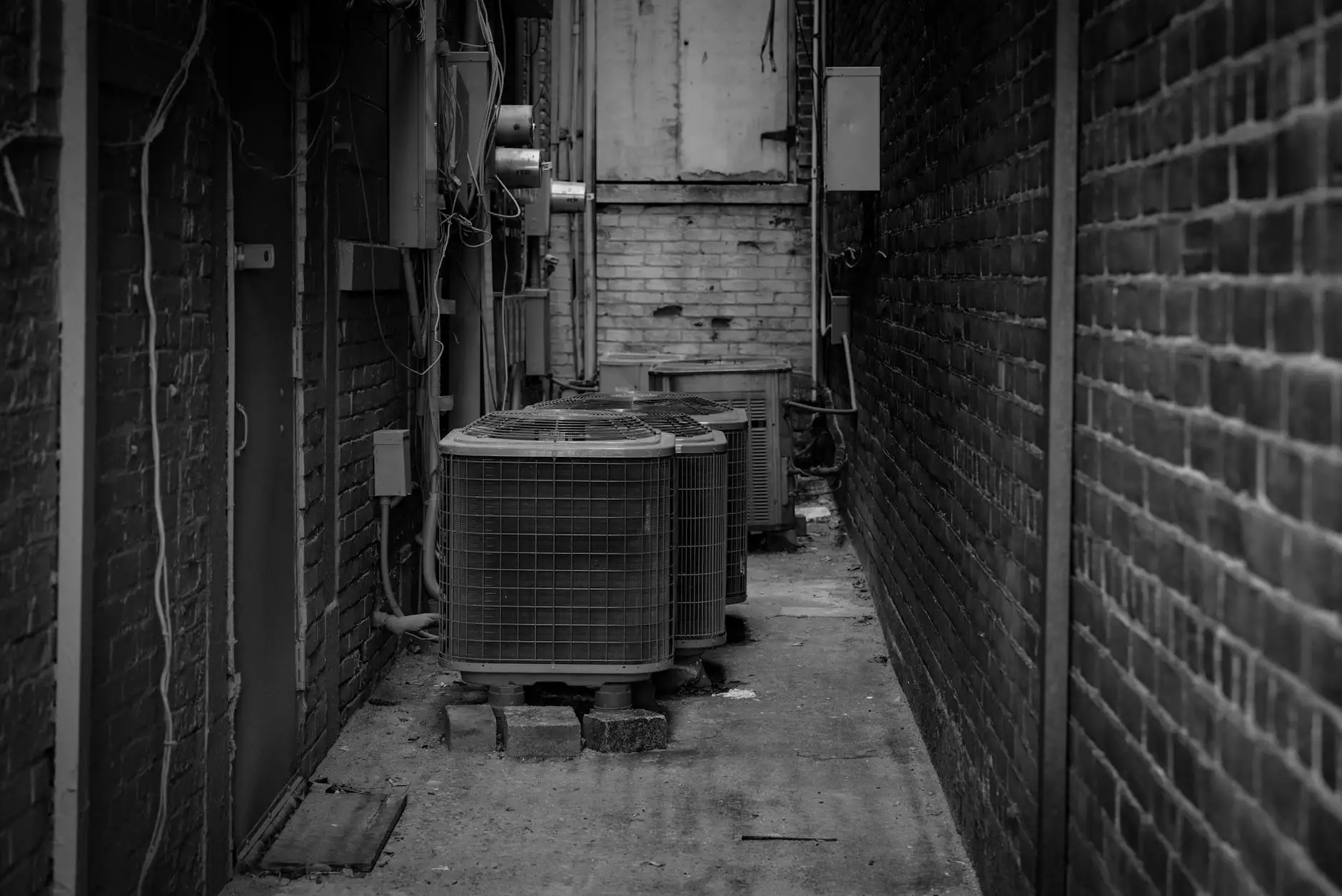Transform Your Comfort: Excellence in Heating & Air Conditioning

When it comes to heating and air conditioning (HVAC), homeowners and businesses alike seek reliability, efficiency, and quality. At Diha Air Conditioning, we are committed to delivering top-notch solutions that cater to your unique needs. This article delves deep into the intricacies of HVAC systems, providing you with essential insights to ensure optimal indoor climate conditions.
The Importance of HVAC Systems
HVAC systems play a crucial role in maintaining comfort within your living or working spaces. Here’s why investing in a well-maintained HVAC system is essential:
- Enhanced Comfort: Proper heating and cooling create a comfortable environment for all occupants.
- Energy Efficiency: Modern systems are designed to operate efficiently, saving you money on energy bills.
- Air Quality Improvement: A good HVAC system enhances your indoor air quality by filtering out contaminants.
- Increased Property Value: Well-maintained HVAC systems can significantly boost the value of your property.
Understanding HVAC Components
To appreciate the functioning of HVAC systems, it’s vital to understand their main components:
1. Heating Systems
Heating systems can be powered by various sources, including electricity, gas, or oil. The most common types include:
- Furnaces: These systems use gas or electric power to heat air, which is then circulated through the property.
- Heat Pumps: Efficient for both heating and cooling, heat pumps transfer heat instead of generating it.
- Boilers: Boilers heat water to provide steam or hot water for heating purposes.
2. Air Conditioning Systems
Air conditioning systems are essential for cooling indoor spaces, especially during hot months. There are different types of air conditioning systems:
- Central Air Conditioning: These systems cool your entire home using a network of ducts.
- Ductless Mini-Split Systems: Ideal for homes without ductwork, providing zoned cooling solutions.
- Window Units: Cost-effective and easy to install, perfect for single rooms.
3. Ventilation
Ventilation is paramount in ensuring fresh air circulation while expelling stale air. Types of ventilation include:
- Natural Ventilation: Relies on natural forces such as wind and temperature differences.
- Mechanical Ventilation: Uses fans and ducts to circulate air, ensuring consistent airflow.
Choosing the Right HVAC System: Factors to Consider
When selecting an HVAC system, there are several factors to consider:
1. Size of the Space
The size of your home or office significantly influences the type and size of the HVAC system required. A system that’s too small will struggle to maintain the desired temperature, while one that’s too large will cycle on and off frequently, reducing its efficiency.
2. Energy Efficiency Ratings
Pay attention to the system's Seasonal Energy Efficiency Ratio (SEER) ratings for air conditioning and the Annual Fuel Utilization Efficiency (AFUE) ratings for heating systems. A higher rating indicates a more efficient system that saves you money over time.
3. Climate Considerations
Your local climate plays a pivotal role in determining the appropriate HVAC system. In areas with extreme temperature fluctuations, consider a versatile system that offers both heating and cooling capabilities.
4. Budget
Consider not just the initial purchase cost but also the long-term operational and maintenance expenses. Investing in a high-quality system can pay off with lower energy bills and repair costs.
Regular Maintenance: Key to Longevity
To ensure your HVAC system operates at peak performance, regular maintenance is essential. Here’s why you should commit to routine HVAC maintenance:
1. Improved Efficiency
Regularly serviced systems operate more efficiently, resulting in lower energy consumption.
2. Extended Lifespan
Just like any machinery, HVAC systems benefit from regular checkups. Timely maintenance can extend the lifespan of your equipment.
3. Prevention of Major Breakdowns
Routine maintenance helps identify potential issues before they escalate into costly repairs. This proactive approach is invaluable for saving money and minimizing inconvenience.
Common HVAC Problems and Solutions
Every HVAC system is susceptible to issues over time. Familiarizing yourself with common problems can help you respond quickly:
1. Uneven Temperatures
If certain rooms are significantly warmer or cooler than others, the issue may lie within the ductwork or the thermostat settings. Ensuring clean and unobstructed airflow can alleviate this problem.
2. Strange Noises
Noisy HVAC systems often indicate issues such as loose components or failing parts. It’s advisable to consult a professional for further inspection if you encounter persistent noises.
3. Poor Air Quality
Dust, allergens, and pollutants can accumulate in your HVAC system over time. Regular filter changes and cleaning can drastically improve indoor air quality, benefiting your health.
Upgrading Your HVAC System: When is the Right Time?
There comes a time when upgrading your HVAC system is the best course of action. Here are signs that it may be time for an upgrade:
- Age of the System: Most HVAC systems last around 15-20 years. If yours is approaching this age, consider replacement options.
- Increasing Energy Bills: A sudden spike in energy costs may indicate your system is working harder than necessary due to inefficiency.
- Frequent Repairs: If you find yourself paying for repairs more often, it may be time to explore new options.
- Inadequate Comfort: If your current system fails to keep your space comfortable, upgrading may significantly enhance your indoor experience.
Embrace the Future with Smart HVAC Technology
Modern advancements in HVAC technology have introduced smart systems that offer enhanced control and efficiency. Here’s what you can expect from smart HVAC technology:
1. Remote Control
Smart thermostats allow homeowners to control their HVAC systems remotely, adjusting temperatures via smartphones, tablets, or computers.
2. Energy Usage Insights
These systems often provide detailed insights into energy consumption, helping users identify ways to save on utility bills.
3. Integration with Smart Home Systems
Many smart HVAC systems can integrate seamlessly with other smart home devices, enhancing overall home automation.
Conclusion
Investing in a reliable, efficient heating and air conditioning system is crucial for any homeowner or business manager. At Diha Air Conditioning, we are dedicated to providing our customers with exceptional HVAC solutions tailored to their needs. From maintenance and repairs to installation of advanced systems, we are here to ensure your indoors are as comfortable as possible. Explore our services today and discover how we can enhance your comfort!
https://dihaairconditioning.com/







